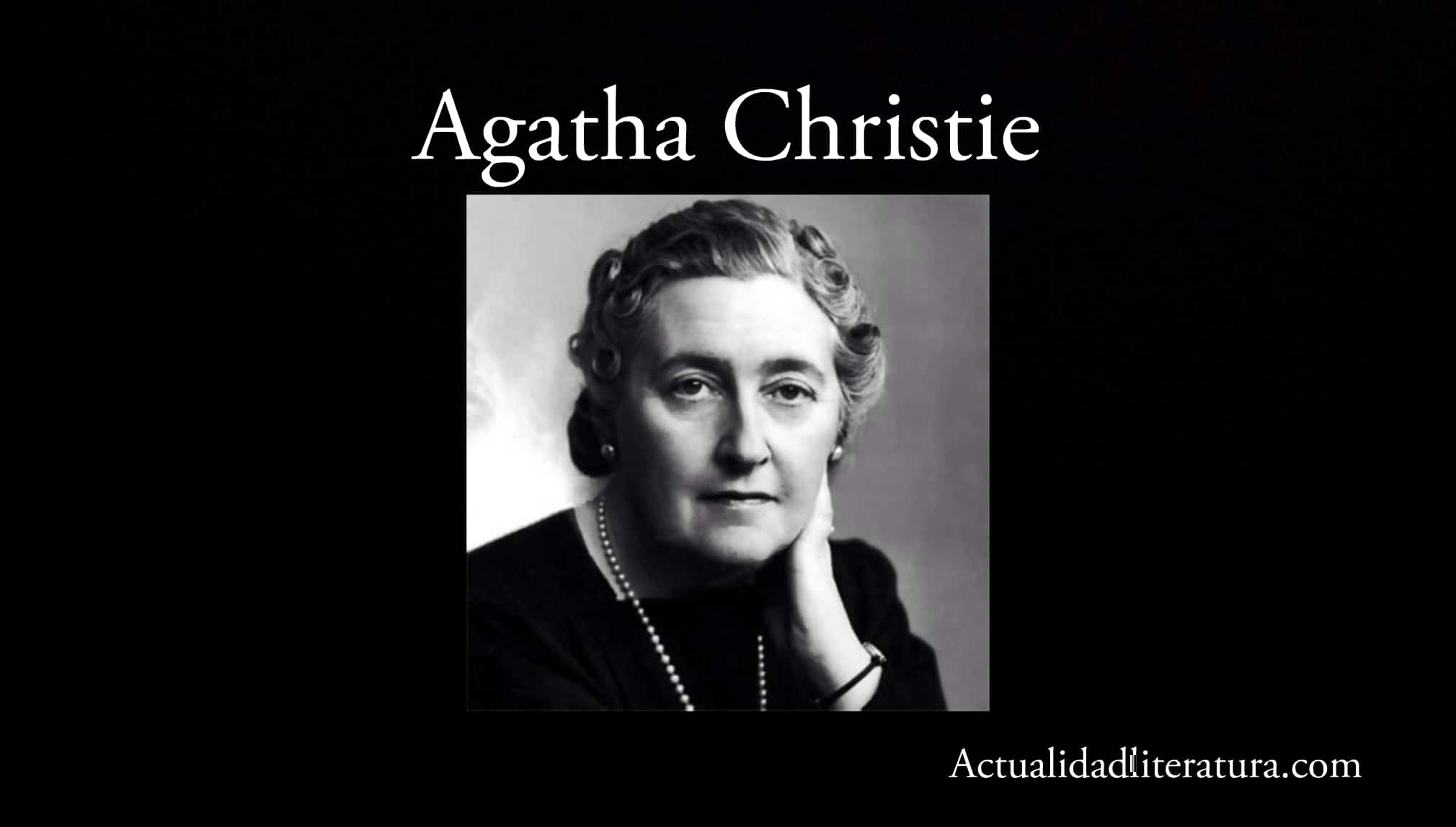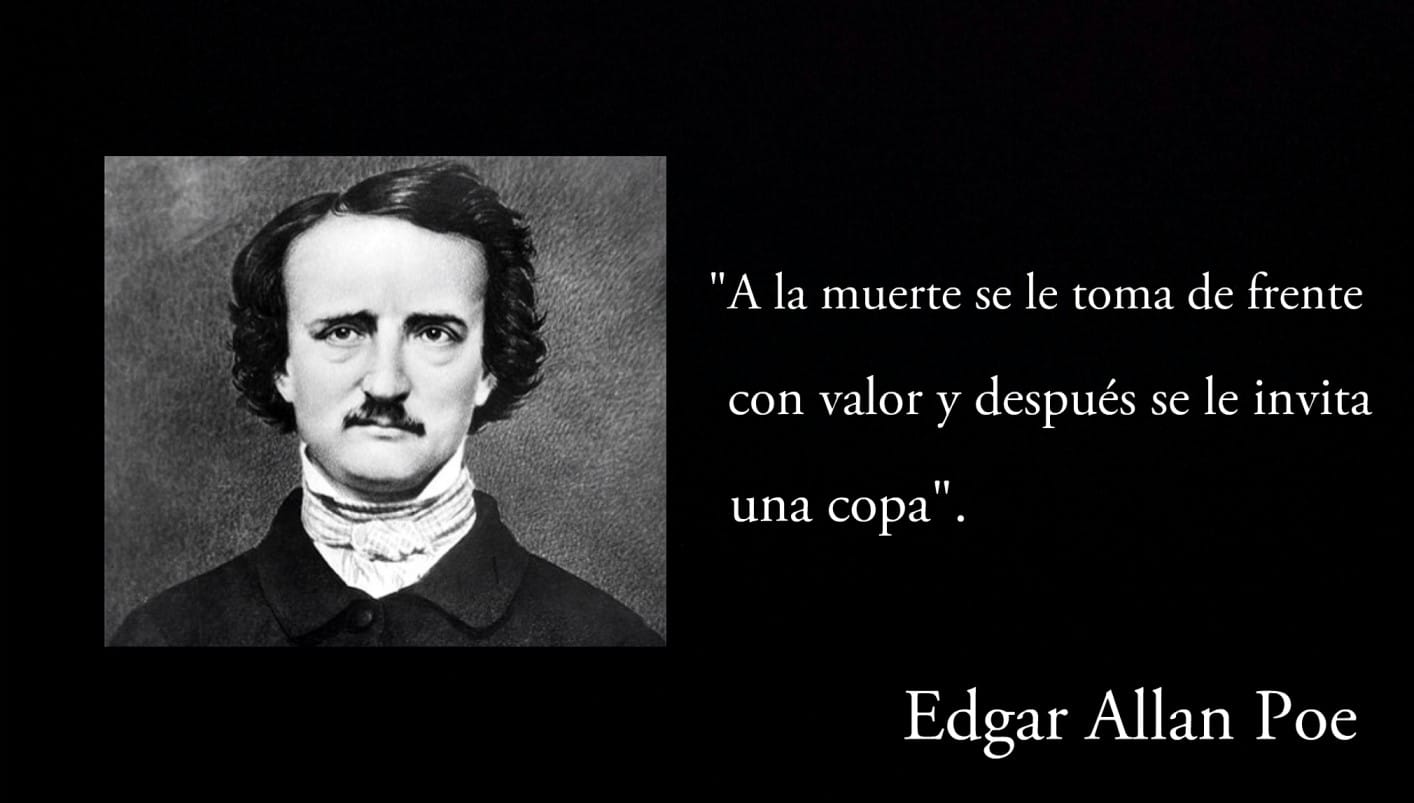
Christie Agatha.
The detective novel is one of the best known literary genres with the largest number of followers today. But it was not always like this. Formally born during the nineteenth century - almost in parallel with the science fiction novel and romanticism - the public of its time did not see it favorably. Although, the above statement is more of a "surface current" than a concrete fact.
In fact, those who objected to this type of literature were members of (the self-styled literary elite) "the great public." Well from its inception the detective novel was enthusiastically devoured by many readers. Multitudes of men and women were trapped inside addictive stories loaded with intrigue and mystery.
The origin of a genre labeled unsightly
For the "scholars" —With all the pejorative charge subjectively included in this adjective— it was "sub-literature". Products devoid of interest, created solely to entertain the masses. Nothing useful to enhance the human spirit. In comparison, the reviews of these "experts" did praise science fiction literature and, above all, romantic heroic adventures.
Crime as a controversial protagonist
The crimes, being the protagonists of the stories, automatically inhibited any pretense of transcendence. Supposedly, the soul (of the readers) did not grow, it did not transform in a positive way. There was only access to a harmless temporary enjoyment. This type of criticism largely continued until the Second World War.
Anyway - fortunately for the authors of the genre - the animosity of literary criticism of the time could never in any way condition its enormous success. Even many of these writers are not only recognized today as true geniuses. In life his work was widely celebrated.
Before and after Auguste Dupin

Edgar Allan Poe.
Edgar Allan Poe He's one of those “off-road” writers. Perhaps the definition is extremely crude. But it is still a valid term to define the breadth of the work of this famous American. Just as his writings are part of the legacy of American romanticism, he is credited with the formal birth of crime novels.
Auguste Dupin was the first character "franchise" (with the commercial connotation currently used) of the literature. In addition, this detective laid the foundations on which one of the most famous names in world literature would be built: Sherlock Holmes. Without a doubt, Sir Arthur Conan Doyle's character is the ne plus ultra as for investigators and revelers of mysteries.
From greece
Although the stories with police "airs" have always been present, Sophocles and his Oedipus Rex it can be considered as the oldest precursor of this type of plot. In this tragedy, the protagonist must carry out an investigation to solve an enigma and find a culprit.
It would not be until The crimes of morgue Street (1841) when this genre achieved a "predetermined" shape and characteristics. Of course, since then detective stories have evolved. But eventually all the detectives return to Poe.
General features
The detective novel has always coexisted on the edge of borders, fantasy and terror. The key point of this genre is that behind each action (of crimes) there is only one Homo sapiens. Without help or coercion from demonic or divine beings. At the same time, the plot takes place in settings that are perfectly recognizable to readers.
The protagonist is someone distinguished by his ingenuity, as well as his amazing capacity for observation and analysis to solve enigmas. All characters - except the investigator and his assistant, if you have one - are suspects. Consequently the reading becomes a frantic race on the part of the readers with the purpose of solving the crime before the detective.
Credibility, first and foremost
A good crime novel should keep the culprit hidden until the end. But without too many elaborate explanations or implausible descriptions at the time of resolution. If Sherlock Holmes himself "forbade himself" to guess, whoever reads his adventures risks a lot when trying to prophesy the end.
Slopes of the detective novel and some characteristics
Roughly, detective literature is divided into two large groups. While these are not the only ones, they do serve as the main beacons guiding all writers eager to propose their own mysteries. On the other hand, Unlike what happened with the romantic novel, the crossing of the waters of the Atlantic went from America to Europe.
English school

Arthur Conan Doyle.
As soon as Auguste Dupin and Edgar Allan Poe arrived in London, a sub-movement or sub-genre known as the English School was established. Besides Sir Arthur Conan Doyle and Sherlock Holmes, the other fundamental piece within this structure is represented by Agatha Christie with her character Hercule Poirot.
This is a kind of mathematical story; of cause and effect. The facts are presented chronologically, while the (almost always) imperturbable protagonist applies addition and subtraction to arrive at the result. A resolution that - to quote Holmes - is "elementary." Obvious only in the eyes of the investigator; unimaginable for the rest of the characters and for the reader.
North American School
In the United States, well into the twentieth century, the most important “subgenre” was born in police literature.. It can even be said that it is the only one recognized as part of this narrative style: the crime novel. As a second great current it appears to oppose the dominant style until the 1920s.
Comparisons between both schools of the detective novel
The English stories were stylized. Most of the time the plot took place in bourgeois circles. The settings were large and luxurious castles, where counts, lords and duchesses appeared as victims and perpetrators. The crimes were a matter of "high society."
Likewise, without being two-dimensional (Sherlock Holmes eventually reveals some of the seams of his personality), the characters of the English School are completely archetypal. The detective is good, honest, incorruptible; the bad guys are "very bad", Machiavellian. It is a fight between good and evil, the truth against the lie, with very few half measures.
The real world?
The crime novel took the police chronicles to "the underworld", to the streets of the most deprived neighborhoods, to miserable, dark environments. Accordingly, the authors were interested in delving into the motivations of the criminals and broke with the idea of the immaculate protagonists (detectives).
Thus, the "antiheroes" of literature emerged. Characters with a very intricate struggle, because - apart from facing a criminal - they face society and a rotten system. Consequently, they almost always act on their own, not caring much about the morality of their strategies. For them, the end justifies the means.
The crime novel and its love-hate relationship with romanticism
With the crime novel, crimes stopped being a "chic" thing, to be portrayed without the slightest hint of romanticism. In addition, the American school rose up against him status quo, becoming (paradoxically) a Protestant literature. Which became - given its historical context, the years before and after the Great Depression - quite romantic, actually.
Essential authors
It is impossible to understand the detective novel without reviewing the contributions of Edgar Allan Poe, Arthur Conan Doyle, and Agatha Christie. A reading that must first be done objectively (as far as possible). Or at least trying not to impose personal tastes at the time of analysis. This, regardless of whether the sensations transmitted by the reading are positive or negative.
The counterpart, also essential
The crime novel is another fundamental part of the history of literature. With the addition of registering a slightly more disputed origin compared to the British School (of detective novels). For many of the American writers of the subgenre who published their stories during the interwar period, aroused conflicting opinions.

Edgar Allan Poe quote.
The most enthusiastic emphasize their attachment to reality. Instead, many question his deep pessimism and lack of absolute happy endings. The reason for such an assertion? Despite the resolution of the crime, the culprit does not always receive the appropriate punishment. Among the most prominent authors in this category are:
- Dashiell Hammlet, with its protagonist Sam Spade (The Maltese Falcon.
- Raymond Chandler, with his detective Philip Marlowe (The eternal dream.
The "reverse" policeman
The "normal" thing is that a detective novel is observed from the perspective of the good. However, there is the "opposite version": villains executing plans to commit their misdeeds and remain free. The classic example to illustrate this subcategory is The talented Mr. Ripley by Patricia Highsmith.
Tom Ripley, the "franchise character" of the book series, is not a detective. He is a murderer and con man posing as his victims. If in the "classic version" of crime novels the objective to unveil the mystery, here the "exciting" thing is to observe how lies are constructed. That is, the point is to see how the criminal "gets away with it."
New Millennium
Stieg Larsson is probably one of the most tragic writers of all time. Not for his writings, but for his life. However, beyond the misfortunes and his early death, this Swedish journalist had time to start the first great detective franchise of the XNUMXst century. It's about the Saga Millennium.
An explosive style

Men who don't love women.
You can buy the book here: No products found.
Men who did not love women, The girl with a match and a can of gasoline y The queen in the palace of the air currents—All published in 2005— they represent all his work. A "bomb" mix (those who have read these texts understand the reason for this term) between the classic British style and the American crime novel.
Two detectives make up "the axis of good" in the stories of Larsson. Their names: Mikael Blomkvist (journalist) and Lisbeth Salander (hacker). As circumstances require, these characters can be extremely analytical and correct, as well as extremely impulsive and immoral.
Police novel in Spanish (some authors)
The detective novel in Spain and in Latin America deserves a separate article to be able to comment on it adequately. From the Iberian Peninsula, one of the most emblematic writers is Manuel Vázquez Montalbán. His detective: Pepe Carvalho, a character as idealistic as he is cynical; He goes from a juvenile communist to a CIA agent, to end up as a private detective.
Examples from Latin America
In Colombia, the name of Mario Mendoza stands out, inspired by the infernal and the divine of the underground Bogota. Satan (2002) is probably his "fundamental" work. Finally, Norberto José Olivar set in Maracaibo, Venezuela, a detective story that borders the fields of the fantastic.
A vampire in Maracaibo (2008), was published in times of maximum popularity of novels starring paranormal adolescents. The detective in this story — a retired police officer — constantly wonders about the existence of a hidden world beyond the obvious.